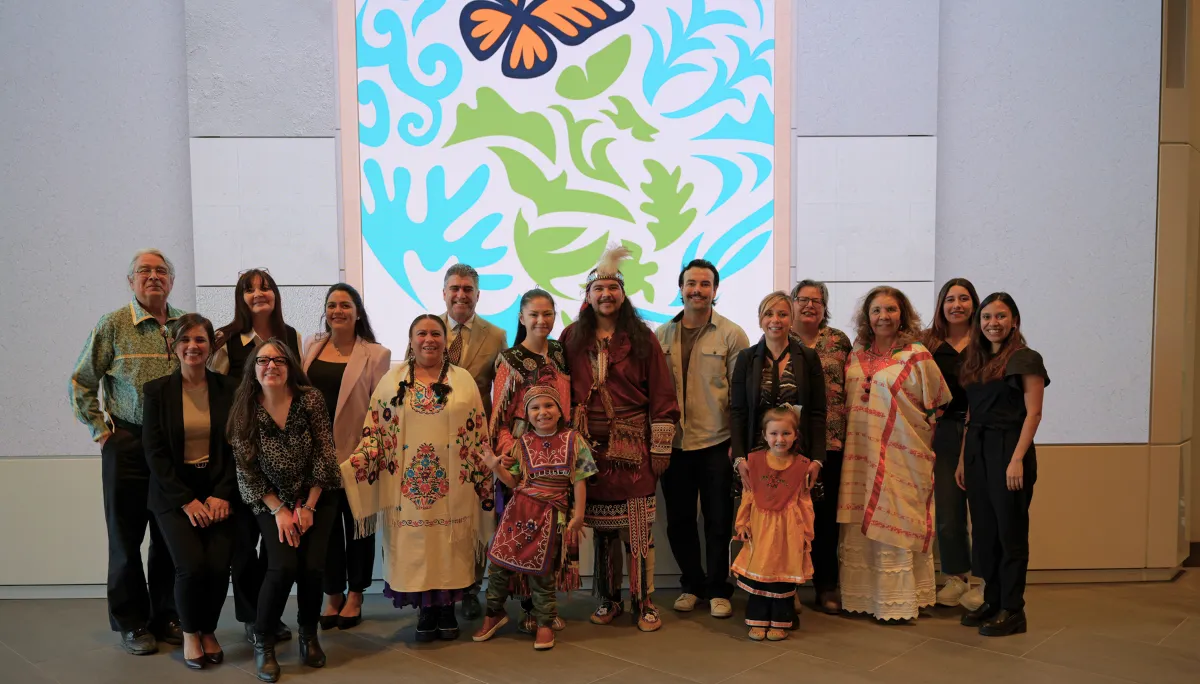Join the CEC in Commemorating the International Day of the World’s Indigenous Peoples 2024
Today, 9 August, is the International Day of the World’s Indigenous Peoples, a day to recognize and celebrate the unique heritage, diverse cultures and vibrance of Indigenous Peoples across the world, while also reflecting on histories of colonial oppression and support ongoing efforts to address injustices.
This year’s United Nations theme underlines the importance of protecting the rights of Indigenous Peoples and is an opportunity for the CEC to reaffirm its commitment to honoring and promoting the respect for Indigenous Peoples' rights, including the right to self-determination, across North America and around the world.
The CEC remains committed to elevating Indigenous knowledge systems, voices and perspectives as we advance our mission to protect and restore the environment of Turtle Island (North America) from coast to coast to coast. By recognizing the vital role of Traditional Ecological Knowledge (TEK) and Indigenous stewardship practices in environmental activities, projects and decisions, and by collaborating with Indigenous governments and communities, we can promote inclusive, equitable and resilient environmental practices and help protect our shared environment for present and future generations.
“At the core of environmental cooperation, Indigenous peoples continue to pursue good and right relations with the natural world and with all lifeforms which share this glorious planet. The leadership, knowledge and wisdom of Indigenous nations is the bedrock of the pathway to the future,” said Kathy Hodgson-Smith, TEK Expert Group Facilitator.
Recent TEKEG Advice to the CEC Council
The CEC Traditional Ecological Knowledge Expert Group (TEKEG), following the June 2024 Council Session and Joint Public Advisory Committee (JPAC) Public Forum (#CEC31), submitted an Advice to the CEC Council on Strengthening Environmental Justice through Community Empowerment.
Throughout CEC31 and its discussions on strategic approaches to advancing environmental justice in North America, the TEKEG observed, among other things, that environmental injustices are overly burdensome on Indigenous Peoples and territories and other vulnerable communities; co-developing policy on environmental management with those most impacted by environmental decision-making, including youth, is critical; Indigenous Peoples have invaluable intergenerational knowledge systems that lead and contribute to planning and decision-making; and that if there is no justice for Indigenous peoples, there is no environmental justice.
In its Advice, the TEKEG made the following recommendations:
- To continue to advance the establishment of a principle-based approach to meaningful engagement of Indigenous Peoples and their knowledge in the work of CEC generally, including in EJ institutional development, and to develop associated guidelines.
- To advocate for increased capacity within the CEC, as reflected in the Strategic Plan, to ensure that Indigenous Peoples and communities are engaged and networked so they can participate meaningfully in dialogues on CEC priorities and are advanced as leaders in finding solutions and remedies to environmental challenges.
- To document issues in environmental management contexts that are facing Indigenous peoples and make recommendations to the CEC as part of a public education context, the path that the CEC has taken in its institutional development to increasing the effective elevation of Indigenous peoples' values and voices in the work of North American environmental management.
- To support the CEC to ensure that the CEC plays a meaningful role in the leadership development of young people from Indigenous communities and identifies existing resources and networks to do this.
Please click here to consult the full Advice.
Resilience of Indigenous Peoples’ Traditional Food Systems Project
The TEK Expert Group is also currently working on a new project examining the current state of Indigenous Peoples’ traditional food systems as one of the major global challenges facing humanity today. The traditional food systems of Indigenous Peoples have existed for thousands of years and are recognized for being sustainable and respectful of nature. While Indigenous Peoples have demonstrated resilience and leadership in maintaining their traditional food systems, most North American Indigenous communities face traditional food system shortages and crises.
Through this project, the CEC will support the greater inclusion of Indigenous leadership and Indigenous Knowledge in activities and decisions affecting Indigenous Peoples’ traditional food systems. You can learn more about the Resilience of Indigenous Peoples Traditional Food Systems project here.
We would like to reiterate our thanks to all the TEKEG members who volunteer their time to the CEC. You can learn more about the Traditional Ecological Knowledge Expert Group here.
If you would like to hear more about CEC initiatives, opportunities and efforts, you can sign up for our newsletter and follow us on social media.

About the CEC
The Commission for Environmental Cooperation (CEC) was established in 1994 by the governments of Canada, Mexico and the United States through the North American Agreement on Environmental Cooperation, a parallel environmental agreement to NAFTA. As of 2020, the CEC is recognized and maintained by the Environmental Cooperation Agreement, in parallel with the new Free Trade Agreement of North America. The CEC brings together a wide range of stakeholders, including the general public, Indigenous people, youth, nongovernmental organizations, academia, and the business sector, to seek solutions to protect North America’s shared environment while supporting sustainable development for the benefit of present and future generations
The CEC is governed and funded equally by the Government of Canada through Environment and Climate Change Canada, the Government of the United States of Mexico through the Secretaría de Medio Ambiente y Recursos Naturales, and the Government of the United States of America through the Environmental Protection Agency.